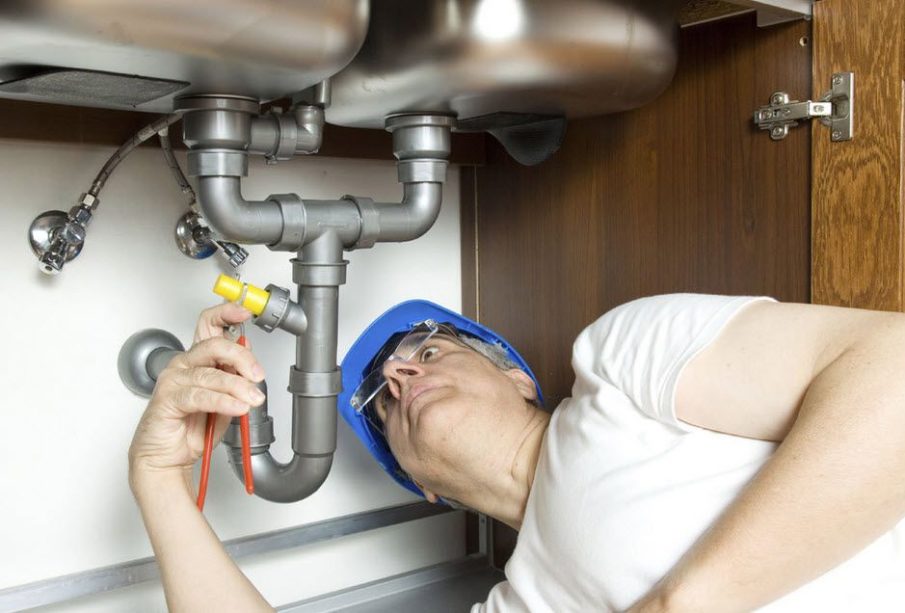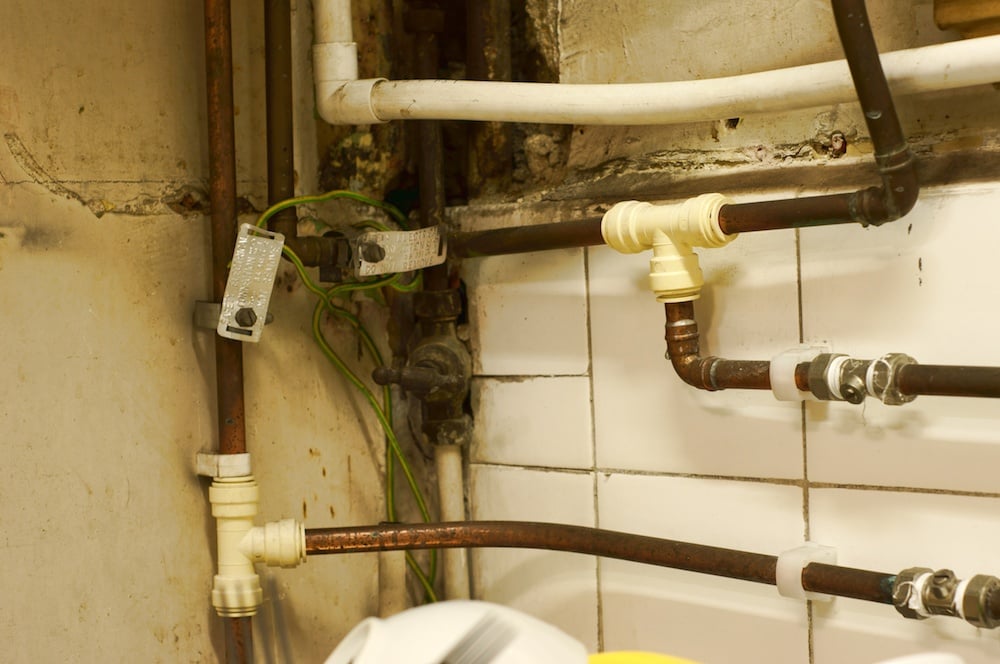Guide to Handling Plumbing Problems in Older Homes
Guide to Handling Plumbing Problems in Older Homes
Blog Article
The article in the next paragraphs pertaining to Plumbing Issues in Older Properties and How to Fix Them is exceptionally enjoyable. Check it out for your own benefit and see what you think about it.

Older homes often come with beauty, personality, and background, yet they can additionally bring a host of pipes concerns. Whether you're taking care of aging pipes, low water pressure, or leakages, understanding how to attend to these typical troubles is essential to keeping a safe and useful home. In this guide, we'll discover the common plumbing obstacles faced by older homes and give useful options to maintain your plumbing in top shape.
Recognizing Common Pipes Issues
Aging Pipes
Among one of the most typical issues in older homes is aging pipelines. Depending upon the period in which your home was developed, the pipelines may be made from materials that have deteriorated gradually, such as galvanized steel, cast iron, or even lead. These products can rust, become fragile, or establish leaks, leading to water damages and prospective carcinogen.
Water High Quality Screening
Older pipes can impact the quality of your water. Conduct a water high quality examination to check for pollutants such as lead, corrosion, or various other contaminations that might be introduced by aging pipes.
Solutions for Usual Pipes Concerns
Replacing Aging Pipelines
If your home has old, deteriorating pipes, think about changing them with modern-day products like copper or PEX. This can be a considerable financial investment, yet it will certainly prevent future concerns and improve the security and integrity of your plumbing system.
Taking Care Of Low Tide Stress
To deal with low tide pressure, start by cleaning or changing old components and removing mineral accumulation in the pipelines. If the trouble lingers, it might be required to replace sections of corroded pipes.
Fixing and Changing Leaking Pipes
For tiny leakages, you can make use of pipe clamps or epoxy putty as a temporary repair. Nonetheless, it's finest to change dripping pipes totally to avoid further damage.
Updating Components
Upgrading old components to modern, water-efficient versions can enhance your home's pipes performance and reduce water consumption. Look for components with the WaterSense tag for the best efficiency.
Handling Pipeline Deterioration
If your pipelines are rusted, changing them with corrosion-resistant products like copper, PVC, or PEX is the most effective solution. Regular inspections and water quality upkeep can help prevent further deterioration.
Low Tide Stress
If you're experiencing low tide stress, it could be due to natural resources, deterioration inside the pipes, or old fixtures that are no longer functioning efficiently. This can be a significant trouble, particularly in areas like showers and sinks.
Dripping Pipes
Leakages are one more frequent issue in older homes, usually brought on by rusty or worn-out pipelines. Even small leakages can bring about substantial water damages, mold and mildew development, and boosted water expenses if not dealt with quickly.
Out-of-date Fixtures
Obsolete plumbing components such as faucets, commodes, and showerheads not only look old yet may additionally be less reliable, susceptible to leaks, or inappropriate with modern pipes requirements.
Pipe Deterioration
Rust is an usual issue in older pipelines, especially those made from galvanized steel or cast iron. Rusty pipelines can restrict water circulation, cause staining, and eventually cause leaks or pipe bursts.
Analyzing the Condition of Your Pipes
Inspecting Noticeable Pipelines
Start by inspecting any type of noticeable pipes in your house, such as those in cellars, crawl spaces, or under sinks. Search for indicators of corrosion, leakages, or rust, which can suggest underlying concerns.
Checking for Leaks
Look for leakages by examining areas around taps, toilets, and under sinks. You can additionally monitor your water meter before and after a duration of no water use to find surprise leaks.
When to Call an Expert
While some pipes problems can be managed with DIY remedies, there are times when it's finest to call in an expert. If you're managing major leaks, substantial deterioration, or are not sure concerning the problem of your pipes, a certified plumbing technician can give expert analysis and fixing.
Preventive Upkeep Tips
Regular Evaluations
On a regular basis evaluate your pipes system for indicators of deterioration. Catching problems early can stop pricey fixings down the line.
Water Stress Law
Ensure your water pressure is within the recommended range to prevent worrying your pipes and fixtures. A plumbing can mount a stress regulatory authority if required.
Water High Quality Maintenance
Set up water filters or softeners if your water quality is poor. This can shield your pipelines and components from damages triggered by difficult water or pollutants.
Positive Pipe Replacement
If your home has very old pipelines, take into consideration positive replacement before significant problems emerge. This can conserve you from emergency repairs and water damages.
Verdict
Taking care of plumbing issues in older homes requires a mix of caution, precautionary maintenance, and prompt upgrades. By comprehending the typical challenges and understanding when to look for expert help, you can guarantee your pipes system remains useful and dependable for years ahead.
Common Plumbing Issues in Older Homes
Pipe corrosion
Pipe corrosion is a common plumbing issue in older homes. Several factors can cause pipes to corrode:
Water: Ironically, water is the number one cause of pipe corrosion. When water seeps into cracks in pipes, it can cause the metal to rust and break down, leading to leaks or even burst pipes.
Oxygen: Oxygen is another significant culprit in pipe corrosion. When oxygen interacts with water, it can cause the metal to oxidize and weaken.
Chemicals: Chemicals such as chlorine and fluoride can also contribute to pipe corrosion. These chemicals can react with the metal in pipes, causing them to break down over time.
Leaky pipes
Pipes that leak is one of the most common plumbing issues plaguing residents of older houses. While a small leak may not be a problem initially, it can lead to significant problems if left unaddressed. In addition, water damage can be very costly to repair and may cause damage to electric fixtures, promote mold growth and cause many other issues.
Worn-out fixtures
Older homes often have worn-out fixtures which may need replacement. Over time, the finishes on fixtures can wear down, exposing the underlying metal to corrosion. This can cause fixtures to leak or even break completely. It s best to have a professional plumbing contractor regularly inspect the fixtures in older homes and replaces them if necessary.
Faulty water heaters
A leaky water heater can cause severe damage to the home as it can be both a flood and fire hazard. Call a plumber immediately if it appears that the water heater might be leaking.
If the heater isn t working correctly, it could be because the pilot has gone out. The pilot light going out may indicate gas supply issues or leaks. It is also worth checking the thermostat to see if it needs to be adjusted.
If the water heater is making strange noises, it could be due to sediment buildup in the tank. Sediment can interfere with the heating elements and cause them to overheat. Overheating can damage the tank and shorten the lifespan of the water heater.
https://www.norfleetfamilyplumbing.com/blog/common-plumbing-issues-in-older-homes

Hopefully you liked our post on Main Plumbing Issues Found in Old Houses. Thanks for taking the time to read through our article. Sharing is good. Helping people is fun. Thanks for being here. Please visit our website back soon.
Click Here Report this page